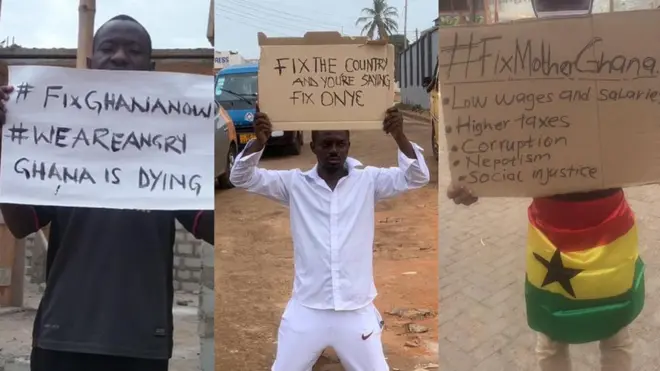A high court in Ghana has blocked civil society groups from holding protests in the capital Accra, one of the organisers said, joining other African governments in trying to quell youth-led demonstrations over the high cost of living.
Organisers said the protests would draw over two million people onto the streets to demand more action from President Nana Akufo-Addo on corruption and living conditions, as well as to protest delays in signing an anti-LGBT bill into law.
High Court Justice Abena Afia Serwaa approved a request by Ghana’s police to ban a handful of organisations from carrying out protests planned between July 31 and August 6 after the police said it lacked the personnel necessary to provide security as officers have been deployed to political rallies amid election campaigning for elections.
Read Also: Photos: Army uncovers ISWAP bread factory in Borno
A wave of youth demonstrations has swept across several African countries in recent weeks.
In Kenya, more than 50 people have been killed and nearly 700 arrested in a police crackdown on demonstrations since mid-June, when protesters began taking to the streets to oppose tax increases proposed by President William Ruto, according to the government-funded Kenya National Commission on Human Rights (KNCHR).
Last week, young people in Uganda took to the streets to protest against alleged corruption and demand the resignation of the parliament speaker.
Police there shut down a march and arrested more than 70 people, according to a legal aid organisation.
Nigeria, meanwhile, last week offered its young people job opportunities in the state oil company (NNPC) and billions of naira worth of grants among other incentives to discourage protests, days before a planned nationwide demonstration over bad governance and a high cost of living, scheduled for tomorrow, Thursday.
In Ghana, protest organiser Mensah Thompson said elections should not block citizens from exercising their right to demonstrate.
Read Also: World Organ Donation Day: Prof. Aliyu Abdu Urges Nigerians to Embrace Life-Saving Organ Donation
“Young people are poised to demonstrate with or without the approval of the authorities,” he said.
“A time comes when they will spontaneously jump on the streets and we will have a ‘Kenya’ on our hands.”
Ghana’s economy buckled after the effects of years of over-stretched borrowing were exacerbated by the COVID-19 pandemic, the knock-on impacts of the war in Ukraine and higher global interest rates.
The gold, cocoa and oil producer has been restructuring most of its $30 billion external debt to be able to implement a $3 billion, three-year International Monetary Fund bailout programme and emerge from its worst economic crisis in a generation.
Ghanaians head to the polls in December to elect legislators and a replacement to President Akufo-Addo in an election expected to be keenly contested.
Reuters

